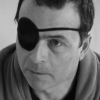Want to know what books D J Taylor recommends on their reading list? We've researched interviews, social media posts, podcasts, and articles to build a comprehensive list of D J Taylor's favorite book recommendations of all time.
1

A PBS Great American Read Top 100 Pick
With extraordinary relevance and renewed popularity, George Orwell’s 1984 takes on new life in this hardcover edition.
“Orwell saw, to his credit, that the act of falsifying reality is only secondarily a way of changing perceptions. It is, above all, a way of asserting power.”—The New Yorker
In 1984, London is a grim city in the totalitarian state of Oceania where Big Brother is always watching you and the Thought Police can practically read your mind. Winston Smith is a man in grave... more A PBS Great American Read Top 100 Pick
With extraordinary relevance and renewed popularity, George Orwell’s 1984 takes on new life in this hardcover edition.
“Orwell saw, to his credit, that the act of falsifying reality is only secondarily a way of changing perceptions. It is, above all, a way of asserting power.”—The New Yorker
In 1984, London is a grim city in the totalitarian state of Oceania where Big Brother is always watching you and the Thought Police can practically read your mind. Winston Smith is a man in grave danger for the simple reason that his memory still functions. Drawn into a forbidden love affair, Winston finds the courage to join a secret revolutionary organization called The Brotherhood, dedicated to the destruction of the Party. Together with his beloved Julia, he hazards his life in a deadly match against the powers that be.
Lionel Trilling said of Orwell’s masterpiece “1984 is a profound, terrifying, and wholly fascinating book. It is a fantasy of the political future, and like any such fantasy, serves its author as a magnifying device for an examination of the present.” Though the year 1984 now exists in the past, Orwell’s novel remains an urgent call for the individual willing to speak truth to power. less 
Steve Jobscalled this book "one of his favorite" and recommended it to the hires. The book also inspired one the greatest TV ad (made by Jobs) (Source)

Richard BransonToday is World Book Day, a wonderful opportunity to address this #ChallengeRichard sent in by Mike Gonzalez of New Jersey: Make a list of your top 65 books to read in a lifetime. (Source)

P J O’RourkeIt’s eerily predictive of the sort of video camera surveillance world that we now live in. It would be interesting to update 1984 and make all of the things that Orwell foresaw more annoying than dangerous. (Source)
2

This unusual fictional memoir - in good part autobiographical - narrates without self-pity and often with humor the adventures of a penniless British writer among the down-and-outs of two great cities. The Parisian episode is fascinating for its expose of the kitchens of posh French restaurants, where the narrator works at the bottom of the culinary echelon as dishwasher, or plongeur. In London, while waiting for a job, he experiences the world of tramps, street people, and free lodging houses. In the tales of both cities we learn some sobering Orwellian truths about poverty and of society. more This unusual fictional memoir - in good part autobiographical - narrates without self-pity and often with humor the adventures of a penniless British writer among the down-and-outs of two great cities. The Parisian episode is fascinating for its expose of the kitchens of posh French restaurants, where the narrator works at the bottom of the culinary echelon as dishwasher, or plongeur. In London, while waiting for a job, he experiences the world of tramps, street people, and free lodging houses. In the tales of both cities we learn some sobering Orwellian truths about poverty and of society. less 
David DownieThat is a book I read when I was young – in my teens – and it really marked me. (Source)

Roman KrznaricOrwell is one of my great empathic heroes. He went tramping in east London, trying to empathise with people who lived on the social margins. (Source)

David KramaleyI really enjoyed Down and Out in Paris and London. I think it’s meant to be a semi-autobiographical novel by George Orwell. I liked it because it was one of those books that had a big influence on the way I perceive and think about the world. Highly recommended. (Source)
3

Intimidated by her father, the rector of Knype Hill, Dorothy performs her submissive roles of dutiful daughter and bullied housekeeper. Her thoughts are taken up with the costumes she is making for the church school play, by the hopelessness of preaching to the poor and by debts she cannot pay in 1930s Depression England. Suddenly her routine shatters and Dorothy finds herself down and out in London. She is wearing silk stockings, has money in her pocket and cannot remember her name. Orwell leads us through a landscape of unemployment, poverty and hunger, where Dorothy's faith is challenged... more Intimidated by her father, the rector of Knype Hill, Dorothy performs her submissive roles of dutiful daughter and bullied housekeeper. Her thoughts are taken up with the costumes she is making for the church school play, by the hopelessness of preaching to the poor and by debts she cannot pay in 1930s Depression England. Suddenly her routine shatters and Dorothy finds herself down and out in London. She is wearing silk stockings, has money in her pocket and cannot remember her name. Orwell leads us through a landscape of unemployment, poverty and hunger, where Dorothy's faith is challenged by a social reality that changes her life. less 
D J TaylorThe great fascination to me of A Clergyman’s Daughter is that although it’s published in the UK in 1935, it is essentially the same plot of Nineteen Eighty-Four, which doesn’t appear until fourteen years later. It’s about somebody who is spied upon, and eavesdropped upon, and oppressed by vast exterior forces they can do nothing about. It makes an attempt at rebellion and then has to compromise. (Source)
4

Gordon Comstock is a poor young man who works in a grubby London bookstore and spends his evenings shivering in a rented room, trying to write. He is determined to stay free of the “money world” of lucrative jobs, family responsibilities, and the kind of security symbolized by the homely aspidistra plant that sits in every middle-class British window.
more Gordon Comstock is a poor young man who works in a grubby London bookstore and spends his evenings shivering in a rented room, trying to write. He is determined to stay free of the “money world” of lucrative jobs, family responsibilities, and the kind of security symbolized by the homely aspidistra plant that sits in every middle-class British window.
less 
D J TaylorIt fits absolutely wonderfully in the trajectory of that route to Nineteen Eighty-Four. It’s about a frustrated poet and embittered bookseller’s assistant called Gordon Comstock who works in a bookshop in Hampstead in North London, is completely disillusioned with the world, and rails against what he calls as the ‘money God’. He’s an anti-capitalist without really understanding how political... (Source)
5

A searing account of George Orwell’s experiences of working-class life in the bleak industrial heartlands of Yorkshire and Lancashire, The Road to Wigan Pier is a brilliant and bitter polemic that has lost none of its political impact over time. His graphically unforgettable descriptions of social injustice, slum housing, mining conditions, squalor, hunger and growing unemployment are written with unblinking honesty, fury and great humanity. more A searing account of George Orwell’s experiences of working-class life in the bleak industrial heartlands of Yorkshire and Lancashire, The Road to Wigan Pier is a brilliant and bitter polemic that has lost none of its political impact over time. His graphically unforgettable descriptions of social injustice, slum housing, mining conditions, squalor, hunger and growing unemployment are written with unblinking honesty, fury and great humanity. less 
D J TaylorThe Road to Wigan Pier is a very transitional book. It shows all the attention to detail and the thought of street-level reportage that distinguishes Down and Out in Paris and London, but it’s moving forward to a political position—the political position—that will underlie what Orwell starts writing in the 1940s, for which we now celebrate him. (Source)
Don't have time to read D J Taylor's favorite books? Read Shortform summaries.
Shortform summaries help you learn 10x faster by:
- Being comprehensive: you learn the most important points in the book
- Cutting out the fluff: you focus your time on what's important to know
- Interactive exercises: apply the book's ideas to your own life with our educators' guidance.




